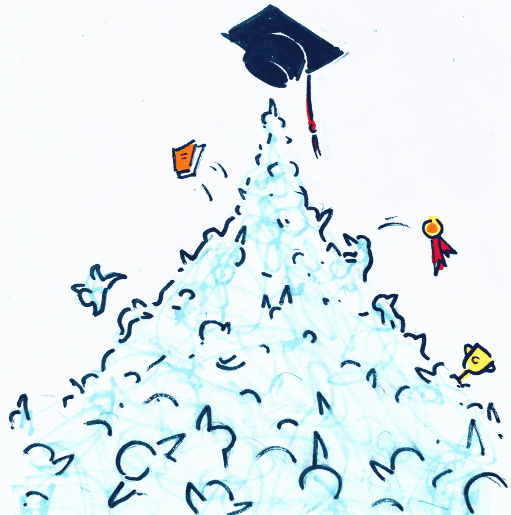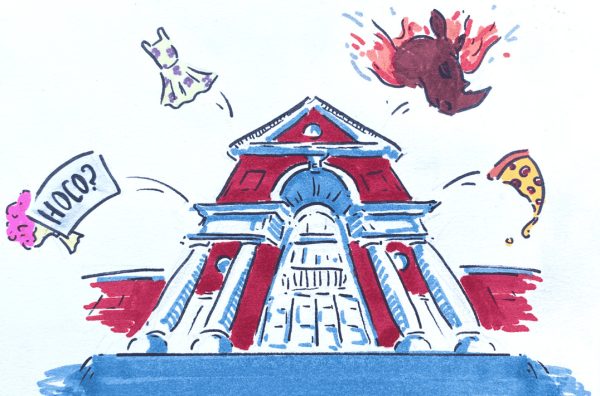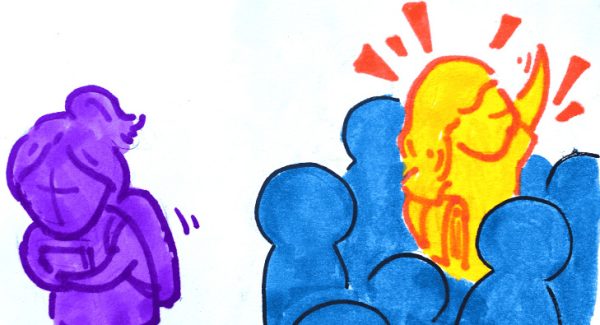Polarization: Danger to Democracy
Members of alt-right groups stormed the United States Capitol Building on January 6, 2021, inspired by a belief that the 2020 Presidential election was rigged. They broke many laws and, most concerningly, attempted to break the system that is the very foundation of American democracy. This insurrection put the consequences of political polarization on full display, demonstrating how it is one of the greatest threats to American democracy—one we must work aggressively to counteract.
Political polarization in America has grown at a concerning speed in the last 40 years, faster than in comparable democracies such as Canada, Germany, and Australia, a trend that perplexes researchers. Some purport that it is caused by social media echo chambers, which keep users in a bubble of content that aligns with their political views, intensifying their support of such political beliefs. The country has also struggled with racial tensions, a problem politicians have capitalized on for personal gain. Extremist news outlets spread misinformation and move Americans further apart on the political spectrum. According to Jesse Shapiro, a Brown University professor of politics who researched polarization in America and other similar democracies, “the two major political parties have become more seperated in certain ways, including ideologically and socially . . . So when you identify with a certain party and you’re looking across the aisle, the people you’re looking at are more different from you than they were a few decades ago.”
Increasing polarization poses many dangers to our democracy. In the words of founding father George Washington, polarization “agitates the community with ill-founded jealousies and false alarms, kindles the animosity of one part against another, foments occasionally riot and insurrection. It opens the door to foreign influence and corruption.” Presently, our ideological differences have become personal loathings. This inability to separate the politics from the person has deadlocked politicians, encouraging them to attack each other instead of legislating. If we don’t work to reduce polarization, our government will become ineffective, extremist actions such as the January 6 Capitol riot will become more prevalant, animosity between citizens due to political affiliation will skyrocket, and American democracy as we know it will be at risk of collapse.
In the face of such a clear and present danger, it’s clear that America must act against polarization. We can break down this response into a few steps.
First, we must formulate our own stances on issues instead of blindly following what our political parties deem correct or appropriate. People often argue that this is the responsibility of our politicians, but what incentive do our lawmakers have to find a middle ground when their constituents move further left and right?
Often, people are reluctant to agree or collaborate with ideas and people from the opposing party because they don’t want to be associated with the extremist beliefs of that party. “Partisans tend to have distorted views of who composes the other party and how many people believe stereotypical views attributed to that party,” said Rachel Kleinfeld, an expert on conflicts in democracy. Emphasizing the prevalence of a party’s moderate opinions will encourage citizens to look beyond those party lines.
Lastly, we must do everything possible to stop the spread of misinformation. Extremist media spreads animosity among Americans and further divides them into political camps.
By committing to these critical actions, we can reduce polarization and ensure the future prosperity of American democracy. If we don’t, core tenets of our country—such as discourse and fair elections—will be imperiled, which will cause the downfall of our beloved democracy.





